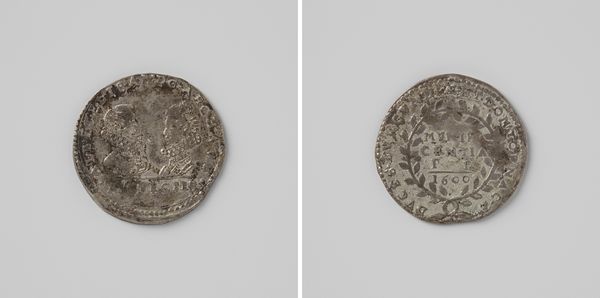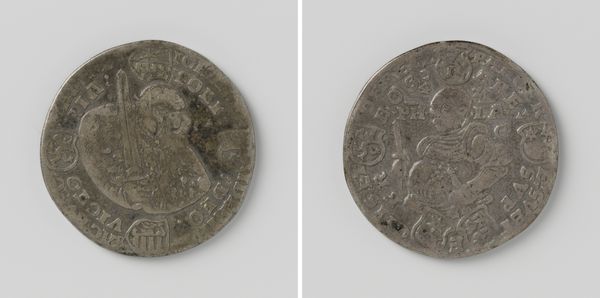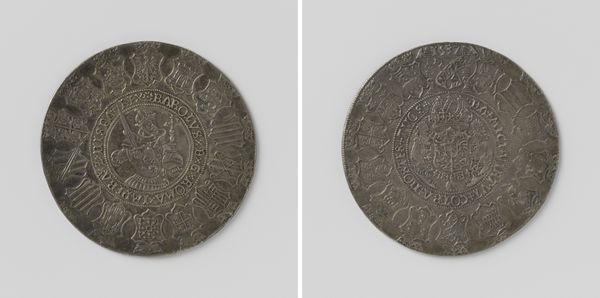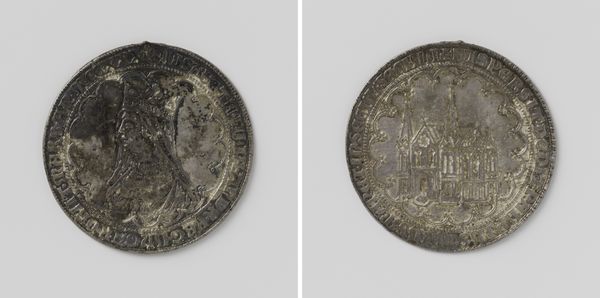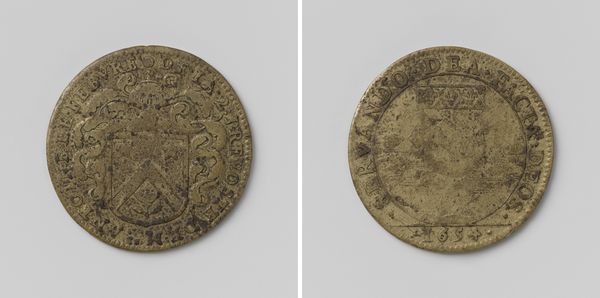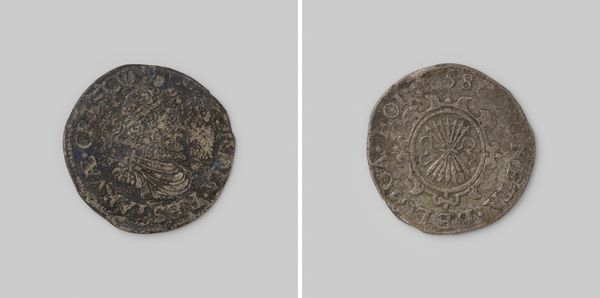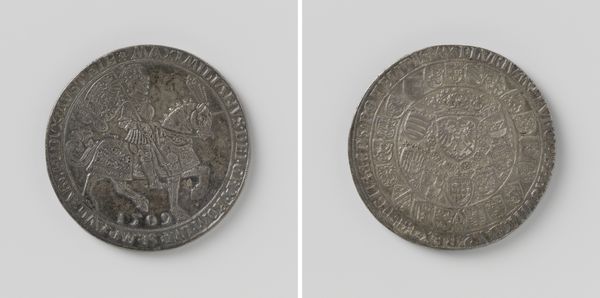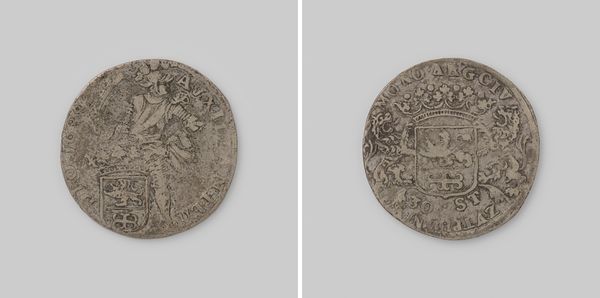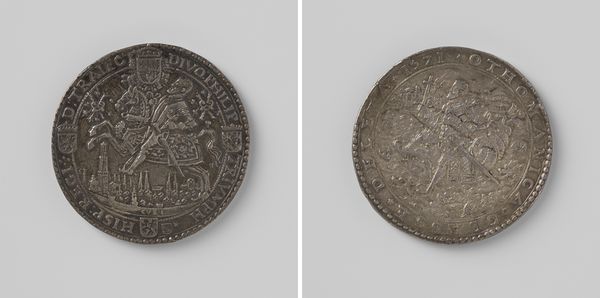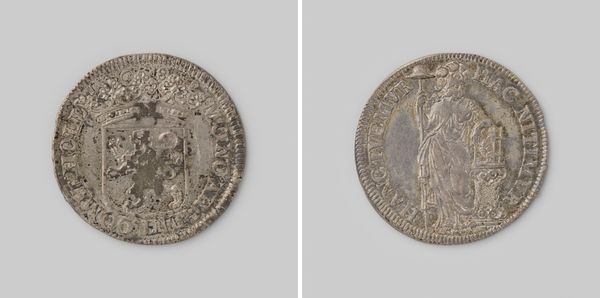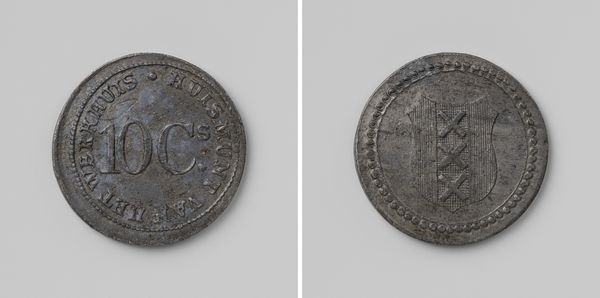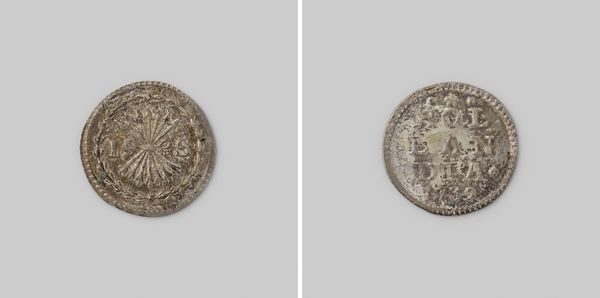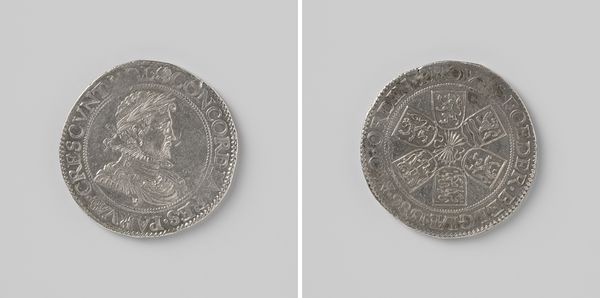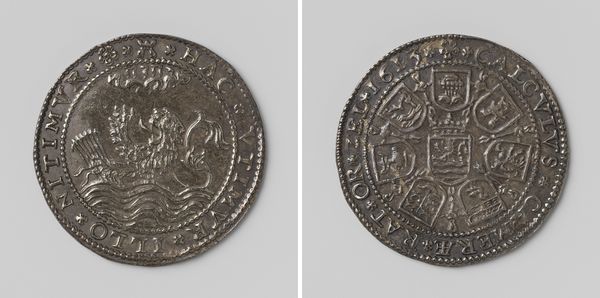
metal, relief, sculpture, engraving
#
portrait
#
baroque
#
metal
#
sculpture
#
relief
#
sculpture
#
history-painting
#
engraving
Dimensions: diameter 3.9 cm, weight 27.92 gr
Copyright: Rijks Museum: Open Domain
Editor: This engraved metal relief, dating back to 1713, depicts "Maximiliaan Emanuel II, keurvorst van Beieren." The craftsmanship is amazing, but what I immediately notice is the detail despite the coin's weathered appearance. Curator, how might its context influence our understanding of this piece? Curator: A piece like this functions as a potent form of propaganda. Currency often served as a means of disseminating the image and authority of rulers. Consider the socio-political environment of 1713. What message was the Bavarian Electorate trying to project? What purpose did it serve within Bavaria? Editor: Well, seeing as how it’s an image of nobility on a coin, I imagine it aimed to solidify their authority through something that was so commonly used in everyday life. Is that sort of visual tactic common for this period? Curator: Exactly! And it was incredibly common. The Baroque period was marked by grand displays of power, often using art to impress and control. How might the deliberate creation and distribution of such an image—essentially placing the ruler’s face in everyone's pocket—impact their subjects' perception of power and governance? Editor: I suppose it was unavoidable! A constant reminder. I hadn’t considered just how purposeful even mundane things like currency were back then, and even now. Curator: Precisely. This isn’t just money; it’s a carefully constructed piece of political imagery, shaping public opinion. Seeing the political strategy, the act of minting, reveals more than just the surface image. Editor: This makes me see everyday art, even coinage, with totally fresh eyes!
Comments
No comments
Be the first to comment and join the conversation on the ultimate creative platform.
